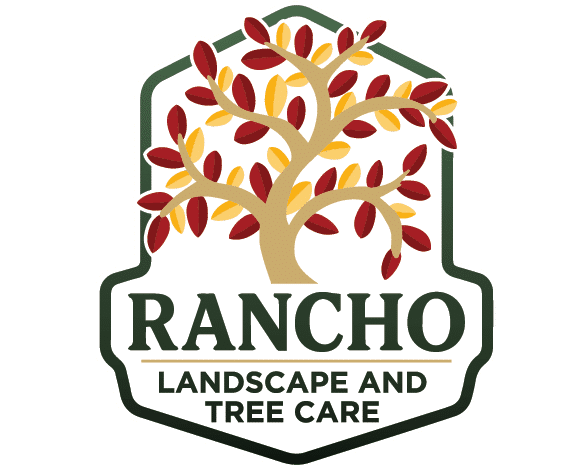
Tree Pruning & Lancing Services
28+ years of reputation for providing caring service
with integrity and fair pricing.
Tree lacing, pruning
Rancho Landscape & Tree Care provides affordable tree pruning and lacing services to all Sherman Oaks, Tarzana, Woodland Hills, Santa Clarita, Simi Valley, Thousand Oaks
Pruning Versus Trimming
Technically the tree care terms “pruning and trimming” refer to distinct purposes, methods, equipment, and timetables. But they’re often used interchangeably, causing no small amount of confusion.
- Tree trimming is done primarily to reduce hazards by removing branches that threatening buildings or threaten to fall on vehicles or pedestrians. That’s especially important for overgrown, diseased, or old trees. But it also improves the appearance and health of the tree Trimming uses powered equipment and often involves crown and height reduction.
- Pruning uses hand shears or small hand saws and is performed primarily for health and appearance. It’s especially important the first 5 years to establish a proper shape.

Pruning
Proper pruning depends on the species of tree. Each type has different needs in how much is removed, the particular techniques, and how often pruning is needed.
Our services include removing dead, damaged, infested, or diseased branches. And our experts know the best diameters and exactly how much to prune for the best health and appearance. Most trees should be pruned while they’re dormant in the winter. But pruning flowering species shortly after blossoming brings more blooms the next year.

Lacing
“Lacing” is a somewhat old-fashioned term, but it refers to a type of pruning that’s been used more and more widely in recent years. It leaves the tree more open, a bit like lacework, for more air circulation and sunlight. It’s common to remove 20-30% (roughly a fourth) of the canopy. That makes for a healthier tree with a manicured look that enhances its natural form, although it may not be what you want if you’re after solid summer shade. The US Forest Service notes that lacing reduces pest problems.
Rancho’s Services
Our tree lacing, pruning and trimming services include haul-away and after-service cleanup. Our experts will perform an inspection and assessment, then use state-of-the-art equipment to achieve your look and your priorities. We also provide 24 hour emergency services.
We’re a family business, and we’ve been satisfying customers for over 28 years with fair prices, timely work, and courteous professionals.



The main goal is to improve the health, structure, and safety of the tree. We remove dead, diseased, or hazardous limbs to prevent failure and encourage strong, balanced growth.
Pruning is a specialized, strategic cut for the tree’s long-term health and structure. Trimming is often done primarily for short-term aesthetic shaping or to maintain clearance.
Lacing is an advanced pruning method that strategically thins the interior canopy. It reduces wind resistance (the “sail effect”), improves light penetration, and increases air circulation to prevent disease.
For most trees, the ideal time is during the dormant season (late fall/winter). However, certain species have different needs, and we can prune anytime to remove dead or hazardous limbs.
Pruning young trees correctly establishes a strong central leader and proper limb spacing. This prevents poor structure, weak joints, and the need for costly corrective work or removals later in the tree’s life.
Crown reduction is a pruning technique that reduces the overall height and spread of the crown. It’s safe only when done correctly by an arborist who cuts back to lateral branches to minimize stress.
Topping is the indiscriminate cutting of large branches to stubs. It severely injures the tree, encourages weak, rapid new growth (water sprouts), and is highly discouraged by professional arborists. We never top trees.
No. Current arboricultural science confirms that wound dressing/sealant is unnecessary and can actually trap moisture, promoting decay. We only make clean, proper cuts that allow the tree to heal naturally.
Yes. Strategic pruning removes non-productive wood and improves sunlight penetration, which directs the tree’s energy toward developing stronger fruit-bearing branches, resulting in a higher yield and better quality fruit.



